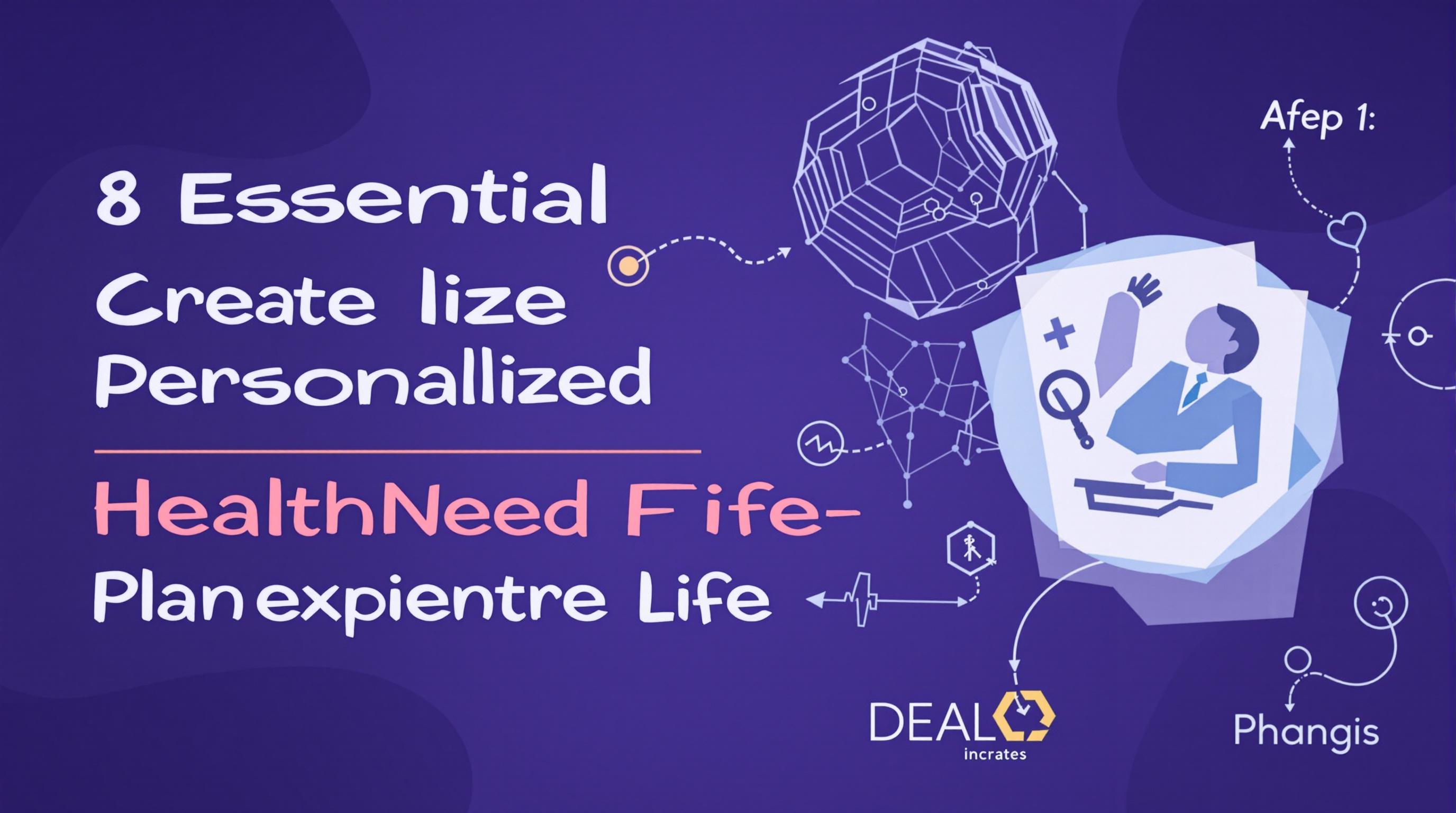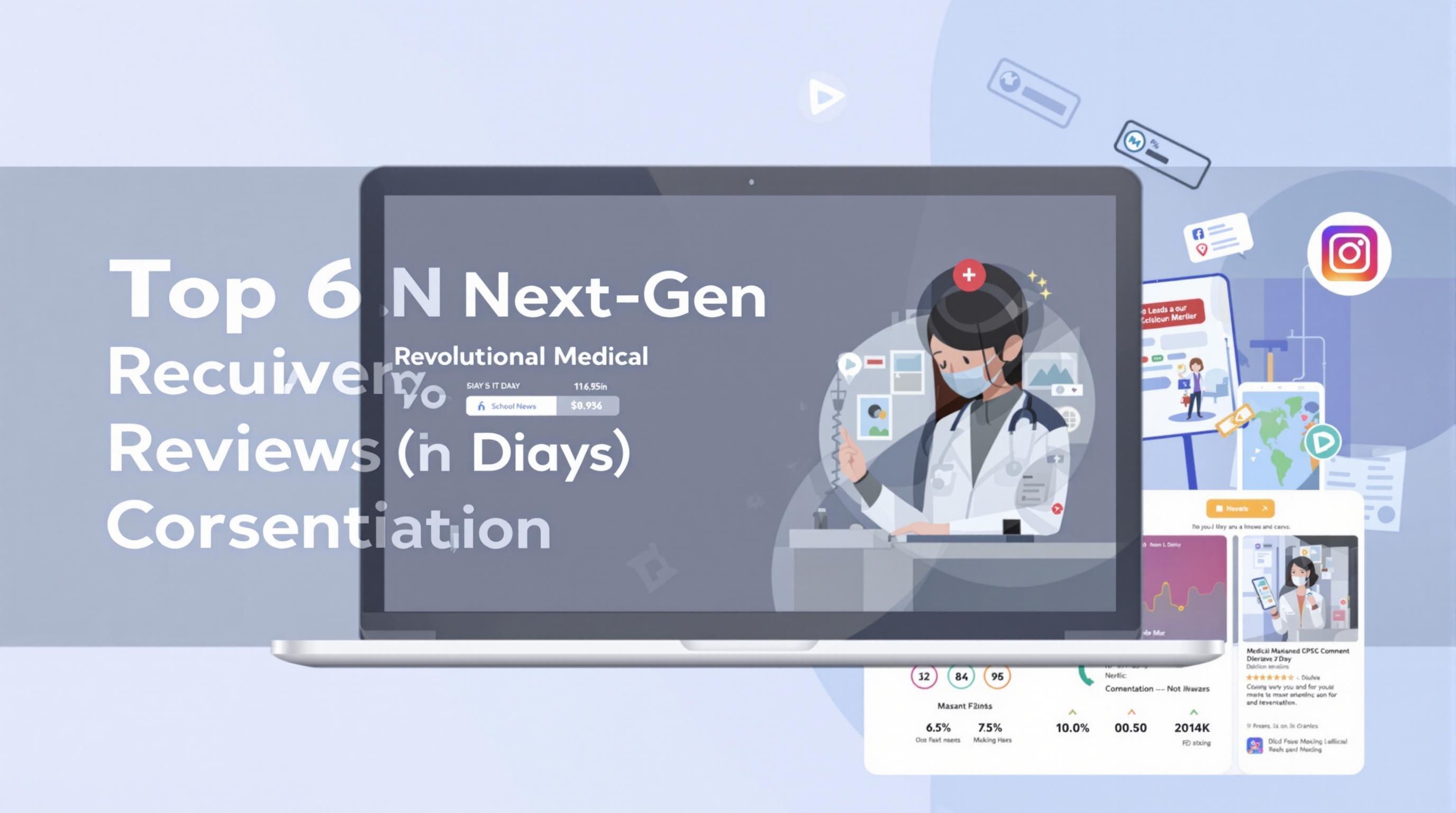Related Articles
- 5 Game-Changing Thematic ETFs Introduced Since 2019 That Are Redefining Global Market Strategies
- Unveiling Forgotten Revenue Streams: How Niche Collectibles Can Silently Boost Your Wealth Over Time
- Unlocking the Secrets: How Forgotten Heirlooms Can Reshape Your Legacy Beyond Traditional Wills
- 7 Emerging Global Investment Platforms Revolutionizing Portfolio Diversity Since 2019
- Unlocking the Role of Urban Gardens in Shaping Future Wellness Strategies Beyond Traditional Medicine
- 7 Emerging Digital Tools for Passive Income Planning Compared and Ranked for 2024 Success
8 Essential Steps to Creating a Personalized Healthcare Plan for Unexpected Life Changes
8 Essential Steps to Creating a Personalized Healthcare Plan for Unexpected Life Changes
8 Essential Steps to Creating a Personalized Healthcare Plan for Unexpected Life Changes
1. Assess Your Current Health Status
Before you can create a personalized healthcare plan, it's crucial to understand your current health condition. This includes knowing your medical history, current diagnoses, medications, allergies, and any chronic illnesses. Gathering detailed information will lay the foundation for a tailored healthcare approach.
Start by reviewing your medical records and consulting with your primary healthcare provider. They can offer insights into potential health risks you may face and recommend necessary screenings or preventive measures. Understanding your baseline health enables you to anticipate needs and create an effective plan.
By honestly assessing your health, you gain awareness of vulnerabilities and strengths. This awareness allows you to prioritize healthcare resources efficiently and ensure that your plan remains realistic and relevant as life circumstances change.
2. Identify Potential Life Changes and Health Risks
Unexpected life changes such as job loss, relocation, or family emergencies can impact your health needs significantly. Identifying these potential triggers is a vital step in crafting a resilient healthcare plan. Consider foreseeable stressors and environmental factors that could affect your health.
Reviewing family medical history can also highlight hereditary conditions that may arise unexpectedly. Recognizing such risks early helps you prepare adequate responses, including preventive screenings and adjustments to your healthcare regimen.
This step demands foresight and adaptability. By anticipating possible life changes, you can incorporate flexibility into your healthcare plan, ensuring it supports your well-being even during unpredictable circumstances.
3. Define Your Healthcare Goals and Priorities
With a clear understanding of your health status and potential risks, establishing specific healthcare goals is key. These goals should align with your values and lifestyle preferences, ranging from managing chronic conditions to maintaining mental health or improving fitness.
Prioritize goals based on urgency and feasibility. For instance, controlling blood pressure may take precedence over elective wellness activities. Over time, your priorities may shift, which underscores the importance of periodic reassessment.
Setting concrete goals enhances motivation and provides measurable milestones. Clear objectives enable you and your healthcare team to tailor interventions that best serve your evolving needs.
4. Choose a Primary Healthcare Provider and Support Team
A reliable healthcare provider is the cornerstone of any personalized plan. Select a primary physician or nurse practitioner familiar with your medical history, who communicates effectively and values your input. Their guidance is pivotal during unforeseen life changes.
Additionally, consider assembling a support team including specialists, therapists, and alternative care providers if necessary. This multidisciplinary approach ensures comprehensive care and diverse perspectives on managing your health.
Strong relationships with your healthcare team foster trust and facilitate coordination across treatments. This cohesion is vital when adapting your plan to accommodate life’s unpredictability.
5. Develop Emergency and Contingency Plans
Unexpected health events demand swift and effective responses. Establishing clear emergency protocols within your plan safeguards your wellbeing during crises. This might include instructions for medical treatment preferences, emergency contacts, and location of important documents.
Contingency plans should address scenarios such as loss of insurance coverage, medication access issues, or sudden mobility limitations. Preparing alternatives ahead of time reduces stress and improves outcomes when life shifts abruptly.
Incorporating these elements ensures your healthcare plan is not only proactive but also reactive, equipped to handle emergencies with clarity and confidence.
6. Incorporate Regular Health Monitoring and Check-ins
Routine health monitoring is an essential component of a personalized plan. Schedule regular check-ups and screenings to track your progress and detect potential concerns early. Use tools like wearable devices or health apps to monitor vital signs in real-time.
Maintain open communication with your healthcare providers through periodic check-ins. Discuss any symptoms, medication side effects, or lifestyle changes that affect your health. This ongoing dialogue enables timely adjustments to your plan.
Consistent monitoring supports your overall health maintenance and allows your plan to evolve responsively as your condition or circumstances change.
7. Address Mental and Emotional Well-being
Health extends beyond the physical; mental and emotional wellbeing are equally important. Identify stressors and coping mechanisms that influence your mental health. Practices such as mindfulness, therapy, or social support networks can be integrated into your plan.
Recognize signs of anxiety, depression, or burnout early and seek professional help if needed. Your healthcare plan should include resources and strategies for maintaining psychological resilience during unexpected challenges.
By valuing mental health in your plan, you cultivate balance and enhance your capacity to manage both anticipated and unforeseen life transitions.
8. Review and Update Your Healthcare Plan Regularly
A personalized healthcare plan is a living document that requires regular reviews and updates. Schedule periodic evaluations to assess effectiveness, accommodate changes in health status, and reflect new priorities or circumstances.
Solicit feedback from your healthcare team and incorporate technological advances or new treatment options. Adjusting your plan ensures it remains relevant, practical, and supportive as your life evolves.
Continuous refinement helps you stay prepared and confident in navigating unexpected life changes while safeguarding your health.
9. Establish Legal and Financial Safeguards
Unexpected health issues can have significant legal and financial implications. Prepare by arranging advance directives, power of attorney, and healthcare proxies to ensure your wishes are honored when you may not be able to communicate them.
Review your health insurance coverage to understand benefits and limitations. Consider supplemental policies if necessary to protect against unexpected medical expenses. Financial planning should also include budgeting for out-of-pocket costs.
Incorporating these safeguards into your healthcare plan reduces uncertainties and provides peace of mind, empowering you to focus on recovery and wellbeing.
10. Educate Yourself and Stay Informed
Empowerment through knowledge is a critical step in personal healthcare planning. Stay informed about your conditions, treatments, and emerging health trends. Reliable sources include healthcare providers, government health websites, and reputable medical organizations.
Engage in patient education programs or support groups to broaden your understanding and connect with others facing similar health journeys. This active involvement enhances your ability to make informed decisions.
By continuously educating yourself, you strengthen your resilience and adaptability, ensuring your healthcare plan remains proactive and responsive throughout life’s uncertainties.
Sources:
Centers for Disease Control and Prevention (CDC). Planning for Your Health. https://www.cdc.gov/
National Institutes of Health (NIH). Creating a Personalized Healthcare Plan. https://www.nih.gov/
Mayo Clinic. Advance Care Planning: Tips and Tools. https://www.mayoclinic.org/



